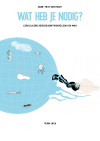In 2018, and in the context of IABR–Atelier Rotterdam, Team1010 examined ways to take the next step in M4H’s transformation into a breeding ground for the circular manufacturing industry at IABR–Test Site M4H+.
How can area development in M4H contribute to Rotterdam’s ambitious goals to realize a fully circular society with closed material cycles by 2050? Which test projects and which coalitions can help this development take shape? And how can sustainable area development be combined with the position of Rotterdam as a global port, and, as such, a hub for the huge amount of raw materials, waste, and semi-finished products that traverse the region? In a circular economy, these flows will have to be shortened, valorized, and eventually closed. The degree to which this is achieved depends on local capacities, skills, people, and places. So, what will it take?
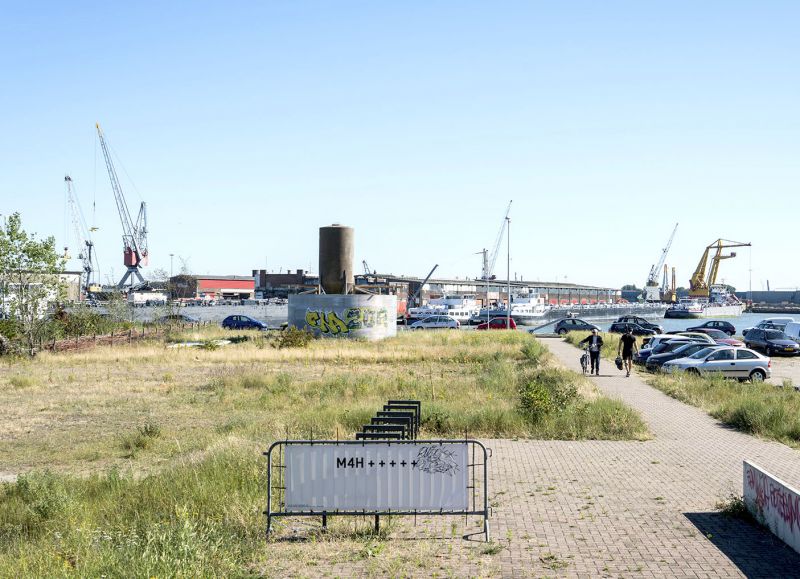
picture: Frank Hanswijk
What do you need?
For its research, commissioned by IABR, the City and the Port of Rotterdam, Team1010 took the drive and strength of the parties that are already active in the area as its starting point. Entrepreneurs were first asked about their ‘maker story,’ ‘growth story,’ and ‘circular story,’ and subsequently about their aspirations: What do you need for your company to flourish in the circular economy? The – extensive – talks with stakeholders and experts continued during IABR–2018, when three circular chains – the agrifood & biohub, the building materials bank, and a textile refinery – were investigated to identify concrete opportunities.
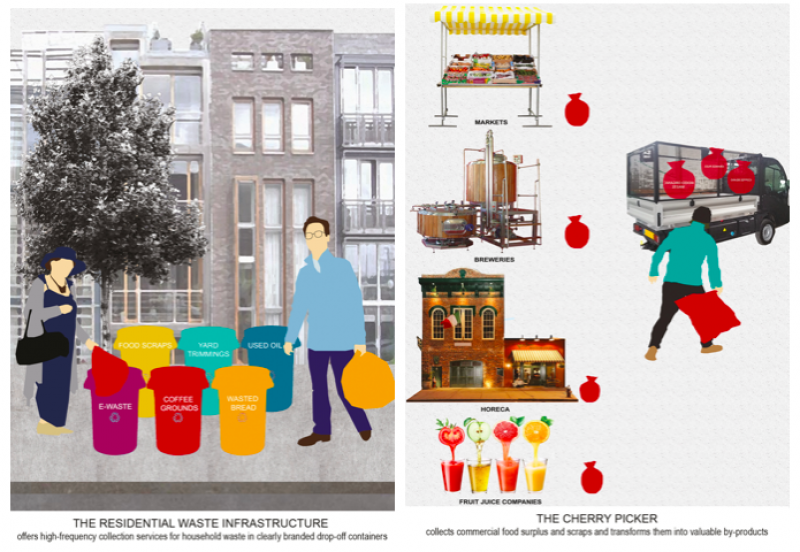
Growing towards a biobased economy
Image: Team1010
In June 2019, the publication Wat Heb Je Nodig? (What Do You Need?) was presented, in which Team1010 demonstrates how a city harbor like M4H can in fact develop into a breeding ground for a circular manufacturing industry. By actively forging coalitions and stimulating the debate in the area, the team furthermore made the taking of further steps possible. It also developed a methodology that is applicable in other locations, a method that aims to address the missing link between ambitions and their realization, and thus to help bridge the gap between plans and projects.
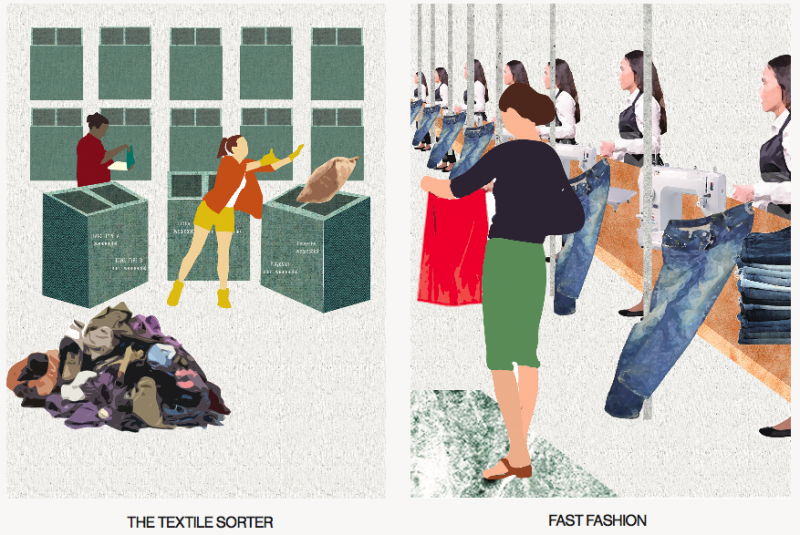
Textiles: preserving values, creating jobs
Image: Team1010
Guiding Principles and Spatial Framework
The results of the research will find their way to implementation in various ways. We identified concrete opportunities for projects, pilots, and additional collaboration in the M4H area to which the City and the Port of Rotterdam as well as the entrepreneurs in the area can contribute. And the Guiding Principles formulated as part of Team1010’s research were included as a guideline in the Ruimtelijk Raamwerk (Spatial Framework), the city’s guiding framework for the development of M4H in the coming years. And for good reason: the Principles promote mutually shared values for policy and development in M4H and are aimed at achieving a progressively more circular, inclusive, and sustainable future.
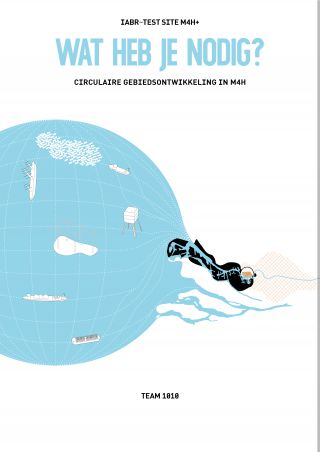
Still available in our webshop is The Productive City – Development Perspectives for a Regional Manufacturing Economy in which the Atelier Rotterdam identifies opportunities for the future of the Metropole Region Rotterdam The Hague from the perspective of the next economy. Click here for more info or to order the book.
Test Site M4H+ is a collaboration of IABR, PBM4H, the City of Rotterdam and the Rotterdam Port Authority.
The research by design for Test Site M4H+ has been carried out by TEAM1010, consisting of 1010au, Mariska Vogel en Ronald Van Der Heijden, under the umbrella of the IABR–Atelier Rotterdam.
